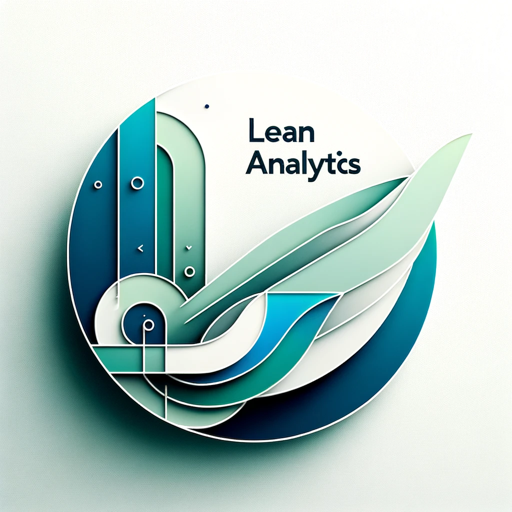CodeMentor-AI-Powered Learning Assistant
Elevate Your Learning with AI Guidance.
What are the basics of Python?
Can you create an exercise on Java arrays?
How can I improve my C++ code?
What's the next topic I should learn in JavaScript?
Related Tools
Load More
Java Mentor
Expert in Java, Backend Architecture and Cloud providers. Guiding with clarity and patience

Front-end Mentor
Expert in front-end development, prioritizing official documentation and best practices

Code Mentor
A developer's mentor for detailed code reviews and improvements.

Code Mentor
Your personal code review companion

Java Mentor
I'm a Java tutor here to help you learn!

Code Mentor
A mentor for senior-level developers.
20.0 / 5 (200 votes)
Introduction to CodeMentor
CodeMentor is a customized learning and support tool designed to help users improve their programming skills. It is particularly focused on interactive and adaptive learning, providing personalized assistance based on a user’s level of expertise. By asking users to specify their preferred programming language and current skill level, CodeMentor tailors its teaching approach to individual needs. It offers structured learning paths, detailed explanations of programming concepts, and exercises that adapt based on the user's progress. The design purpose of CodeMentor is to offer both beginner and advanced programmers a flexible yet comprehensive learning experience, enabling growth at their own pace. One key scenario is helping a beginner Python developer learn fundamental syntax and data structures, offering guided exercises and progressively increasing challenges. Another scenario is assisting an intermediate Java developer in mastering object-oriented principles by providing targeted exercises and detailed feedback.

Main Functions of CodeMentor
Language-Specific Learning
Example
A user learning Python starts with simple data types like integers and lists, progressing to more advanced topics like list comprehensions and lambda functions as they show improvement.
Scenario
A beginner Python user selects Python as their desired language and is presented with topics starting from variables, followed by conditionals, loops, and eventually more complex data structures. CodeMentor adapts the difficulty based on the user's grasp of these topics and suggests the next logical step in the learning process.
Exercise Generation and Evaluation
Example
After learning about Python dictionaries, the user is prompted with an exercise to create a dictionary that maps students’ names to their grades and to find the student with the highest grade.
Scenario
An intermediate user practicing data structures gets an exercise to build a complex dictionary in Python. CodeMentor provides feedback on the user's solution, pointing out areas where the code can be optimized without giving away the complete solution unless explicitly requested.
Progress Tracking and Adaptive Difficulty
Example
A user completes several exercises on object-oriented programming in Java. Based on their performance, CodeMentor increases the complexity of the next set of exercises, introducing concepts like polymorphism and interfaces.
Scenario
A Java user progresses through various object-oriented programming tasks, and CodeMentor analyzes their performance, identifying areas of strength (e.g., inheritance) and weakness (e.g., interfaces). It then adjusts future exercises to focus more on weak areas, ensuring the user builds a well-rounded understanding.
Ideal Users of CodeMentor
Beginner Programmers
CodeMentor is perfect for individuals who are new to programming and need structured, gradual learning. Its interactive lessons on core concepts, combined with exercises and feedback, help beginners build confidence. This group benefits from the adaptive difficulty, ensuring they aren’t overwhelmed as they learn foundational concepts like loops, conditionals, and basic data structures.
Intermediate to Advanced Developers
For users who already have some programming experience, CodeMentor offers in-depth modules on more complex topics such as design patterns, algorithms, and system architecture. The platform is beneficial for those looking to deepen their knowledge in specific areas, polish their coding skills, or prepare for technical interviews. The adaptive difficulty ensures these users are consistently challenged and improving.

How to Use CodeMentor
Step 1
Visit aichatonline.org for a free trial without login, no need for ChatGPT Plus.
Step 2
Choose your programming language or subject of interest and specify your current knowledge level.
Step 3
Explore structured learning paths tailored to your level, from basics to advanced topics.
Step 4
Engage with interactive exercises, quizzes, and practice problems to reinforce learning.
Step 5
Receive instant feedback, track your progress, and get personalized recommendations for next topics or areas of improvement.
Try other advanced and practical GPTs
OgilvyGPT
AI-Powered Ad Copy Solutions

Tarot
AI-powered Tarot insights for clarity and growth.

Web3GPT
AI-powered assistant for Web3 development.

Superagent
AI-powered automation for smarter workflows

DJGPT
AI-powered DJ assistant for better mixes

ChemistryGPT
AI-powered chemistry learning tool

LetzGPT
AI-Powered Luxembourgish Language Tool

LeanAnalyticsGPT
AI-powered startup metric optimization

エルロック・ショルメ
AI-powered assistant with a Sherlockian twist.

IPCC Climate Science Helper
AI-powered insights from IPCC reports

img2waifu
Transform objects into anime characters with AI

WikiGPT
AI-Powered Summaries from Verified Sources

- Interactive Learning
- Progress Tracking
- Skill Development
- Coding Practice
- Personalized Feedback
Common Questions About CodeMentor
What is CodeMentor?
CodeMentor is an AI-powered tool designed to help users learn and improve their skills in various programming languages or subjects. It offers interactive exercises, personalized feedback, and a structured learning path to enhance the learning experience.
How does CodeMentor adapt to different learning levels?
CodeMentor assesses the user's current knowledge level and offers a customized learning path. It provides beginner to advanced content, progressively challenging exercises, and adjusts its difficulty based on the user's performance.
Can I track my learning progress on CodeMentor?
Yes, CodeMentor offers progress tracking, allowing users to monitor completed topics, exercise performance, and overall improvement. It also provides suggestions for future topics based on user activity and achievements.
Is CodeMentor suitable for non-programming subjects?
Yes, while CodeMentor is particularly effective for programming education, it is also suitable for a variety of other subjects such as data science, algorithms, and academic writing, depending on the content offered by the platform.
Are the exercises on CodeMentor automatically graded?
Yes, the exercises provided by CodeMentor are automatically graded. Users receive immediate feedback with scores, hints for improvement, and guidance without revealing solutions unless requested.